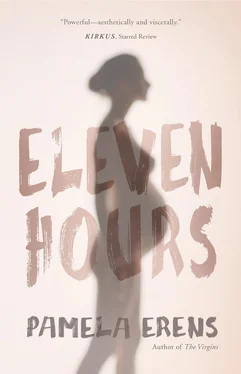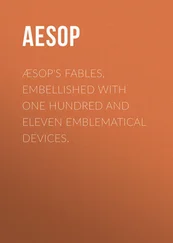Pamela Erens - Eleven Hours
Здесь есть возможность читать онлайн «Pamela Erens - Eleven Hours» весь текст электронной книги совершенно бесплатно (целиком полную версию без сокращений). В некоторых случаях можно слушать аудио, скачать через торрент в формате fb2 и присутствует краткое содержание. Год выпуска: 2016, Издательство: Tin House, Жанр: Современная проза, на английском языке. Описание произведения, (предисловие) а так же отзывы посетителей доступны на портале библиотеки ЛибКат.
- Название:Eleven Hours
- Автор:
- Издательство:Tin House
- Жанр:
- Год:2016
- ISBN:нет данных
- Рейтинг книги:4 / 5. Голосов: 1
-
Избранное:Добавить в избранное
- Отзывы:
-
Ваша оценка:
- 80
- 1
- 2
- 3
- 4
- 5
Eleven Hours: краткое содержание, описание и аннотация
Предлагаем к чтению аннотацию, описание, краткое содержание или предисловие (зависит от того, что написал сам автор книги «Eleven Hours»). Если вы не нашли необходимую информацию о книге — напишите в комментариях, мы постараемся отыскать её.
Eleven Hours
Eleven Hours — читать онлайн бесплатно полную книгу (весь текст) целиком
Ниже представлен текст книги, разбитый по страницам. Система сохранения места последней прочитанной страницы, позволяет с удобством читать онлайн бесплатно книгу «Eleven Hours», без необходимости каждый раз заново искать на чём Вы остановились. Поставьте закладку, и сможете в любой момент перейти на страницу, на которой закончили чтение.
Интервал:
Закладка:
And no one prevented her from watching. She saw everything. Somehow the others knew not to shoo her from the door. She learned to bring tea leaves and massage the scalp of a woman in the early stages of labor. They called her Ti Matrone, the little midwife. Over time she absorbed the practicalities: when to make the woman walk, when to make her drink, when to wait. By the time she was eleven or twelve she knew how to turn a breech baby, apply herb compresses for heavy bleeding, make a woman expel a baby that had died. The villagers said she had the gift, she was what they called pon , or bridge, could bring life safely from there to here, from the womb to the world. Of course there were times when the babies died. The mothers too. But mostly Erzulie Mapiangue favored Franckline when she attended at a birth, and protected the laboring mother. Back then others’ pain did not touch her, had nothing to do with her; not until after her own child — then.
The girl, Lore, beyond the contraction again, lowers herself onto her side and lies there, hot misery radiating from her skin. “I thought I would be better at this,” she says.
Franckline pulls a chair up close. “Let me ask you. You can yell, can’t you?”
The girl is silent.
“Here is what you do. You are right, you can forget that deep-breathing nonsense. Nobody can breathe through those pains. When the next one comes, I want you to take one big breath and then yell, but very slowly, you understand? Not with your mouth but from the back of your throat, deep.” Franckline demonstrates, rumbling her voice up in a quiet groan. “But louder. You yell in slow motion, making it last as long as you can. Okay? We’ll practice when you’re ready.”
“I’m ready now.”
“Good.”
“Help me onto my hands and knees.”
“Now,” says Franckline, when Lore is in place. “Draw in a lot of air — down into your belly — and yell it back out. Slowly.”
“UUUUUHHHHHHH.”
I can open this girl, Franckline thinks. She will open. “Not bad, but you can do better than that.”
“UUUUUHHHHHAAAAAAAAKKKKK.”
“Don’t close up the throat.”
“UUUUUUUUHHHHHHHHHHHAAAAAAAAA.”
“That’s better. That’s better. You do that when the next one comes.”
“Help me down,” says Lore. She rests, and then wakes with a startle. She can tell that she’s slept no more than a minute. Franckline is still beside her as before, and she can just remember the thought, or rather the image, right before she dropped. She was dialing a phone in a taxi, trying to push swollen fingers at the small keys. Then she dropped. And in that short minute she went somewhere else, into an apartment she has never been in, where a woman with snow-white hair was serving her beautiful small cakes on a platter. The platter, silver, gleamed brightly. Lore dithered over which cake to take first — they were all so appealing — and then, before she could put her fingers around one, someone shrieked loudly, as if to shoo her away.
She hears it again now — the shriek. It was the noise that woke her. It is a woman somewhere down the hall, and Lore blames her for taking away the platter of cakes. It was wonderful to have been there, in that severely well-appointed room, attempting to choose something sweet. Although now that she is awake she does not like the thought of food at all. The apartment had something in it of Asa’s parents’ apartment, of Helen Fox’s impeccably ordered library. The woman shrieks again. In childbirth class Lore and her classmates saw movies of women who did not scream and did not panic, but bore their pain with athletic grimaces. She had been in a temper every Wednesday at six thirty in the evening, in the big room above a city gym, tired from the day spent coaxing second and third graders to pick up M&Ms by sucking on a straw. As she walked from the subway, her hips twinged at each step. Sometimes, through one hip, there shot a bolt of pain so strong that she had to stop while other people bumped her and cursed. It felt as if the hip was coming unhinged from the leg, as if it was going to snap out at some strange angle like a puppet’s. These twinges, these bolts, had come on around the seventh month. All sorts of things had happened at the seventh month. Eating anything spicy made her ill for days. She could not tolerate milk. She had gas and hiccups.
She knew that there were other women in the childbirth group who came straight from work, without even a break for dinner, in their maternity blazers and heels that pinched their swollen feet, but even so, even though she had time to go home from P.S. 30 and drink a little tea and have a little meal, she was in a temper every Wednesday and could not bring herself to like the class. The plumpish instructor, her own children grown and gone, was a nice woman, well-meaning, yet Lore was irritated by every word she spoke. Why? Why should she dislike Betsy, the instructor, or Melissa and John from 74th Street or Catherine and Peter from Summit, New Jersey? Was it because, as her mother would have put it, they looked like money? Why did Jane and Cecily’s plans to have Cecily birth the baby in their feng-shui’d bathroom cause Lore to smile with condescension? For a short time (Diana’s influence), she herself had flirted with using the bathtub. Perhaps that was what it was — these other women, these couples , still believed in what they could imagine, still enjoyed building up in their minds their perfect homes, their perfect births. Whereas she, the one partnerless woman, the one who always had to team up with the instructor for the exercises, stood precisely for the fact that things did not turn out as you had planned. Betsy massaged Lore’s back, showing the muscle groups that John and Peter and Jane should press on during the labor, to release tension. She held Lore’s hand, to demonstrate the importance of loving touch.
When she got home from class, there would be another message from Asa on her answering machine. Lore thinks it must have been Marjorie who got in touch with him. A couple of times Marjorie had asked her nervously whether she’d spoken to Asa, and didn’t she think he had the right to know about the baby? No matter what had happened? And mightn’t being in touch help, you know, financially?
Diana overheard and scolded Marjorie terribly. Asa had slept with Lore’s best friend , she reminded her. And Lore didn’t need some asshole’s help: she had a good job and good benefits, she would manage on her own. Very sure of Lore, very cavalier about Lore’s finances, was Diana.
The shrieking woman has fallen silent. Maybe she is all right. Maybe the baby has emerged and it is all over for her. Maybe they gave her an injection that took away the pain.
“Would you like some water?” asks Franckline.
“Yes, please.”
Franckline brings her a paper cup from the sink, and when Lore is done with it offers more. After three cupfuls Lore sinks back onto the bed feeling much better, as if her veins and tendons had needed watering. She sighs. It is not so bad to lie here between pains, waiting, daydreaming. She likes the silence, and she likes Franckline for preserving it. A bolt of sun pierces the big window, dashing a stripe onto her blue hospital gown and warming her face. Soon she will sit in the rocking chair on deposit at Babies ’R Us (she would not take it home with her, nor has she stenciled the living room, nor put together the crib: it is not good to tempt fate) — soon she will sit in such an offering of winter sun, a single ray warming the baby and the breast at which it suckles, and they will rock and rock in a shaft of time that has stilled just for them. While the baby sleeps Lore will cook green things in a big skillet, and water the plants: the geranium and the coleus and, in honor of her mother, the Starfighter lilies tended from the bulb all winter. Her mother had labored patiently over her lilies in the rocky little yard of their house in Hobbes Corners. Lilies her favorite, but there were also cosmos and phlox, tulips and roses. At night, moonlight drinkers tossed empty bottles onto their lawn.
Читать дальшеИнтервал:
Закладка:
Похожие книги на «Eleven Hours»
Представляем Вашему вниманию похожие книги на «Eleven Hours» списком для выбора. Мы отобрали схожую по названию и смыслу литературу в надежде предоставить читателям больше вариантов отыскать новые, интересные, ещё непрочитанные произведения.
Обсуждение, отзывы о книге «Eleven Hours» и просто собственные мнения читателей. Оставьте ваши комментарии, напишите, что Вы думаете о произведении, его смысле или главных героях. Укажите что конкретно понравилось, а что нет, и почему Вы так считаете.












